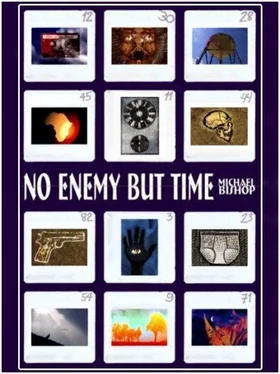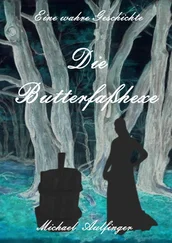“Not developing , damn it! Developing!”
Nonplused by the small figure in rolled pajama bottoms, the nurse merely gaped. What kind of madness did the little man represent?
Kaprow said, “As in photography, I think he means.”
“Right. She’s getting darker. All it took was bringing her out of the film pack and into the dark room.”
Joshua rocked the Grub. She grinned prettily at him, and he marveled at the way her skin was ripening toward a delicate duskiness. His daughter, developing…
Marakoi, Zarakal
September 1987
Theywere seated beneath the fringed awning of Bahadur Karsanji’s on Tharaka Boulevard in the blindingly bright heart of the capital, Marakoi. Karsanji’s, a café, was one of the few businesses in the city still under Indian ownership after the wholesale “Africanization” of Asian-run establishments in 1972. It had escaped because it had a cosmopolitan clientele, a reputation for excellence antedating by three decades Zarakal’s political independence, and an owner of discreet Machiavellian canniness in matters of mercantile survival.
Nearly every table under the red-and-white awning was occupied, and the crowd inside the restaurant was creating a din twice as nerve-racking as that of the traffic in the streets. Joshua and his mother, three days after his awakening in the base hospital, were eating spinach-filled crêpes (Jeannette’s idea) and drinking a good California Chablis (his). At two o’clock that afternoon she would be departing the country from Marakoi International Airport, and they did not know when they would see each other again. The enlistment time remaining to Joshua complicated his situation, and so did his paternal claim on the infant in the hospital. Neither Kaprow nor Blair had welcomed this claim, for the paleoanthropologist viewed the Grub as the spoils of Joshua’s mission while the physicist regarded her as a vexatious temporal anomaly. Jeannette had no idea the infant even existed, for Joshua had refrained from mentioning her after collapsing in front of his mother and Jeannette had supposed his ravings about a daughter the products of disorientation and delirium. At present the child was the ward of the United States Air Force, with a room of her own on the hospital’s third floor and a round-the-clock guard.
Though Joshua had begged and ranted, the small special staff assigned to his daughter would not permit him to feed, bathe, or hold her. In fact, he had seen her only once during the past three days. An awkward swallow of Chablis choked him, blurring his vision.
“There you go,” said Jeannette Monegal, thumping his back. “You just haven’t readjusted to the pleasures of fine food and drink yet. What have they been feeding you at the hospital?”
“Rice.”
“What else?” she asked rhetorically. “I wrote you a letter, Johnny.”
“A letter? Why?”
“In case they wouldn’t let me see you.”
“They did, though.”
“Amazingly. Through Dr. Kaprow’s good offices. Neither the Air Force nor Alistair Blair nor the Zarakali government wanted to let me in. My book on Spain—it’s just come out—has already given me a reputation as a caustic international muckraker. I had to sign a document declaring that I was coming to Zarakal solely as a tourist. Supposedly, having signed the damn thing, I can’t even publish a travel article without first clearing it with the American Embassy and two or three local ministries.”
“You agreed to that?”
“To see you, yes—I certainly did.” She withdrew an envelope from her large straw purse. “Here’s the letter. Please don’t read it till I go. If you have any questions, you can write me in care of Anna in Newport News, Virginia. She and Dennis Junior are visiting in-laws. Here’s the address. I’ve got your APO number. We’ll stay in touch, okay? If you remove yourself from my life for another eight years, John-John, I’ll be an old woman when next we meet. So stay in touch, okay?”
“Yes, ma’am.”
She slid a bill of large denomination across the table and stood up. He rose, too, but she would not permit him to accompany her to the airport, insisting that an airport farewell would “demolish me utterly,” phraseology he had never before heard on her lips. They had both changed in eight years, eroded or subtly augmented by the sweep of time’s river. The rattle of wine glasses and silverware, the background babble of English and Swahili—Joshua suddenly felt isolated and bereft. He wanted his mother to go quickly because he did not want her to go at all. She kissed him on the forehead, the blessing of a matriarch on one of her smallest and most beloved.
“ Ciao , Johnny.”
“ Cao ,” he responded automatically.
Jeannette laughed. “I hope I’m not supposed to construe that as a slur. Even if I deserve it. ’Bye, honey. Be good.” She threw him a kiss and, carrying her own bag, stooped into the rear seat of a minicab parked about a quarter of a block from Karsanji’s. When the cab came cruising past the restaurant, she gave him a faint smile before stoically averting her gaze.
He ate the remainder of his crêpe, drank the last few sips of his wine, and, buoyed by the money she had left, ordered a custard and another bottle of Chablis. He was already high, and many of the people around him undoubtedly attributed his furtive glances at the street, his maniacal alertness, to the quantity of wine he was putting away. Or maybe he was involved in an illicit affair and both his drinking and his nervous watchfulness were inspired by guilt. The predator for which he kept watch might be his paramour’s cuckolded husband.
Actually, he was thinking of Helen and wondering what she would have made of this bizarre scene. The primeval savannah underlay nearly thirty square blocks of concrete, stucco, and glass. Males in cutaway jackets and leather sandals brought food to you at a table. The streets were full of unimaginable noise, and the women walking upright past the shop windows wore plumage as bright as, or even brighter than, that which the males wore…. Joshua was glad Helen had not survived to witness the benign horror of civilization, equally glad he had survived to reexperience it. To dislodge Helen from his mind, he opened his mother’s letter—which, over a year and a half ago, she had composed in longhand in Madrid.
Apologies and a quiet plea for reconciliation dominated the first page or so, shading away into news about Anna and her handsome new son. Johnny was an uncle; she, Jeannette, a grandmother. They would be a real family again when he and Dennis Whitcomb returned from East Africa—for Anna had ignored Johnny’s advice and spilled the beans about his assignment to Russell-Tharaka Air Force Base.
Well, of course she had. Joshua had belatedly realized that she would, driven by her sense of family and her respect for family hierarchies. It was all right. Joshua forgave Anna her trespass, which was less against him than against the Air Force and the sovereign state of Zarakal.
At which point the letter shifted gears again, moving from the topic of family bonds to that of blood relationships. A subtle, even disturbing shift. Joshua’s hands began to tremble—not merely from the heat and the wine—as he continued reading what his mother had written:
After doing my one and only novel (which did not of me an Agatha Christie or a Barbara Cartland make—so quickly back to nonfiction), I contracted with Vireo to do The Reign in Spain: Life and Politics in Post-Franco Iberia . Then I came here to research and write my book. Or, at least, the book was my ostensible reason for coming. The truth is that I thought you might be here, too, searching for a part of your own past you never had the opportunity to verify on your own.
Читать дальше



![Ally Carter - [Gallagher Girls 01] I'd Tell You I Love You But Then I'd Have to Kill You](/books/262179/ally-carter-gallagher-girls-01-i-d-tell-you-i-lo-thumb.webp)








